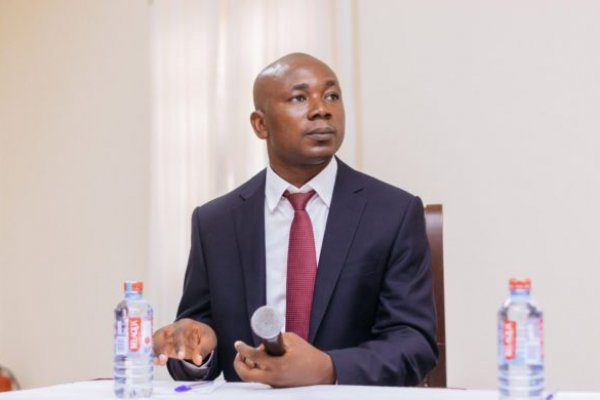Economist and professor of Finance at the University of Ghana, Professor Godfred Bokpin, says stakes are extremely high for the 2023 budget and economic policy statement to be presented to parliament by Finance Minister Ken Ofori-Atta, as it has to respond to multiple stakeholders.
Speaking to Business and Financial Times on the sidelines of the 2022 Board|CEO|CAE Governance Workshop organised by the Institute of the Internal Auditors Ghana, Professor Bokpin said: “It [the budget] has to respond to aspirations of the International Monetary Fund (IMF) by reflecting the broad fiscal framework adjustment that will be included in the staff level agreement”.
So the IMF, he said, is waiting for government to use the 2023 budget to deliver a statement of its commitment to an IMF programme – with the private sector also expecting the budget to place it at the forefront of the country’s transformation as the continent moves deeper into implementing the African Continental Free Trade Area (AFCFTA).
Time for tough decisions
With the IMF warning of tougher times in 2023, Professor Bokpin said the budget and economic policy statement must outline some tough decisions in preparation for the worse that’s yet to come.
The IMF is projecting global growth to slip to 2.7 percent next year – noting that if the world were to divide into two distinct blocs with little or no trade between them, output would drop by more than 1.5 percent of global GDP amid the potential human cost of fragmentation, poverty, hunger and social unrest.
“All this makes 2023 a much harder year for policymakers than 2020. Back then, policymakers had one common objective – to support the economy; meaning that monetary policy and fiscal policy were moving in the same direction. Now, fiscal policy must be deployed very carefully to target the most vulnerable parts of economy but without undermining monetary policy and the fight against inflation,” said Kristalina Georgieva, Managing Director-IMF, at the Asia-Pacific Economic Cooperation (APEC) Leaders’ Summit earlier this month.
Given the IMF warning, Professor Bokpin has called for drastic and tougher decisions – including policy redirection by government in the budget, aimed at unburdening Ghanaians from the biting economic challenges.
“Whether we like it or not, Ghana has to make some tough decisions during the next three/four years in order to create a future that we will be happy with. There’s a price that we will have to pay. That’s why the stakes are very high for the 2023 budget, because the budget has to respond to multiple stakeholders,” he stated.
Prioritising economic stability
Meanwhile, the Ghana National Chamber of Commerce and Industry, GNCCI, and the Association of Ghana Industries (AGI) have called for prioritising economic stability and recovery, with local solutions at the centre in the budget.
While calling for a review of what they described as not-too-business-friendly taxes – like the benchmark policy on imported products and electronic levy (E-levy), among others – they said the budget should outline practical measures to bring predictability to the business environment while inspiring confidence in the economy, so as to boost recovery.
“The persistent and current issues facing the economy require deliberate attention on pursuing home-grown policies. In this regard, the GNCCI strongly urges government to provide more support to value addition, local content optimisation, export development, trading of domestic products and services, and efficient competition laws – which are sustainable tools needed to manage exchange rate and inflation stability and achieve macroeconomic prudence,” the Chamber said in a statement to the B&FT.










